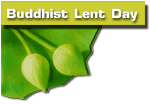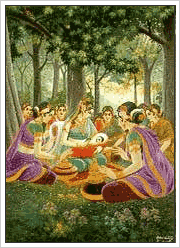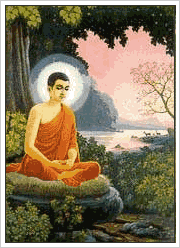 |
|
|||||||
"Visakhapuja
Day" Visakhapuja Day is recognized by the UNESCO on December 13, 1999 as "World Heritage Day". VISAKHA
BUCHA (Vesak) means the worship of the Buddha on the
full moon day of the sixth lunar month. It usually falls
in May. In the case of a year with an extra eighth lunar
month--Adhikamasa (there are 13 full moons in that year)--
the Visakhapuja Day falls on the full moon day of the
seventh lunar month.
BIRTH-ENLIGHTENMENT-PASSING
AWAY Visakhapuja
Day is one of the most important days in Buddhism because
of three important incidents in the life of The Buddha,
i.e. the birth, the enlightenment and the passing away,
miraculously fall on the same month and date, the Vesak
full moon day. So each year, Buddhists throughout the
world gather together to perform the worship to recollect
the wisdom, purity and compassion of the Buddha.
'TUM BOON': Making merit by going to temples for special observances, making merit, listening to Dhamma preaching, giving some donations and join in the other Buddhist activities.
|


